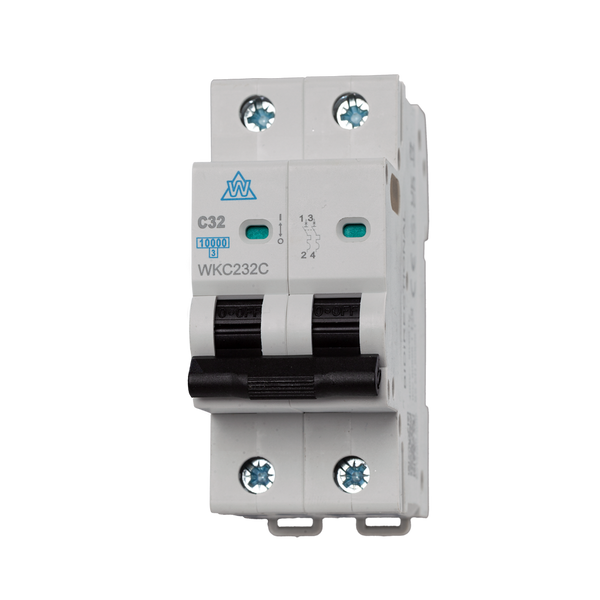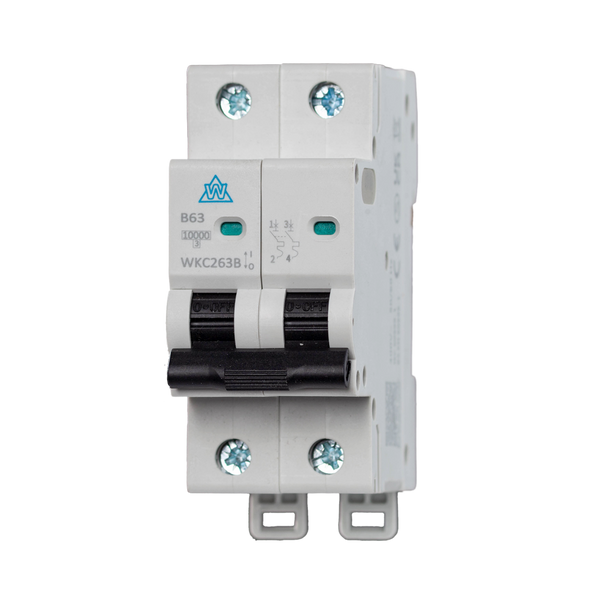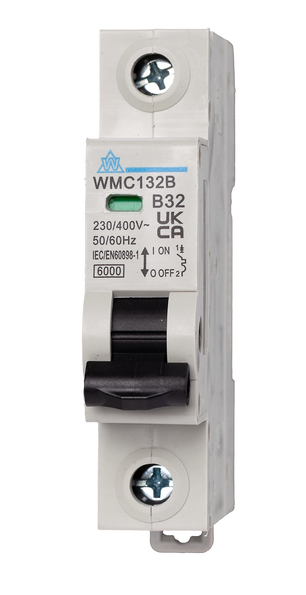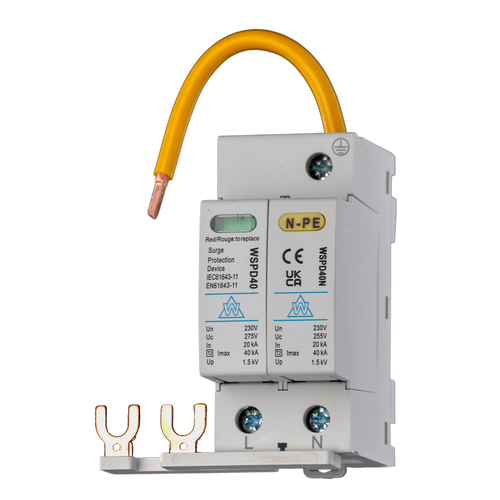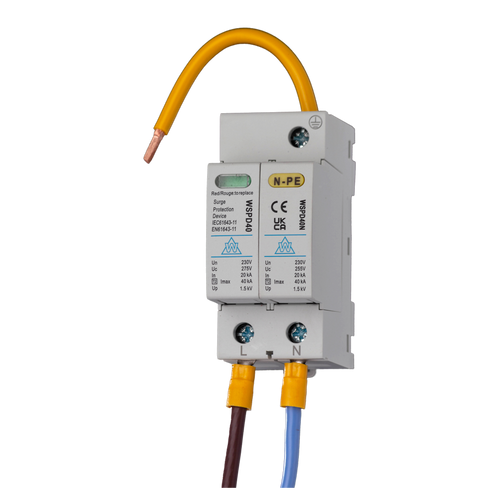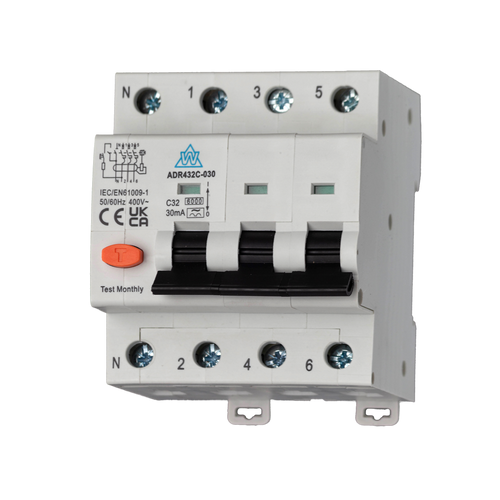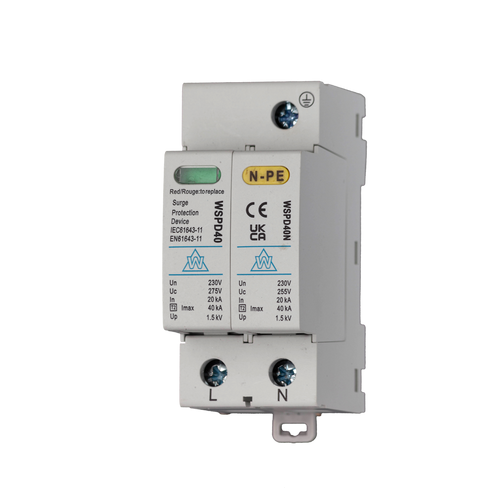WKC 2 Pole 10kA MCB's 6-63A
The WCED 2 Pole 10kA Miniature Circuit Breaker (MCB) range delivers dependable overcurrent and short-circuit protection for domestic, commercial, industrial, solar, and EV applications. Built for long service life and stable performance, these MCBs are available from 6A to 63A with B, C, or D trip curves to match your...

The WCED 2 Pole 10kA Miniature Circuit Breaker (MCB) range delivers dependable overcurrent and short-circuit protection for domestic, commercial, industrial, solar, and EV applications. Built for long service life and stable performance, these MCBs are available from 6A to 63A with B, C, or D trip curves to match your circuit requirements.
- 10kA breaking capacity – suitable for high fault level environments
- 2 pole design – isolates both live conductors for added safety
- Available in B, C & D curves (D curve on request)
- Rated for 6–63A operation
- Bi-directional – install either supply end up
- Provides short-circuit and overload protection, plus isolation
- Suitable for solar PV and EV installations
- Compact DIN rail mounting – 36mm width
What’s the difference between B, C, and D curve MCBs?
B curve trips at lower inrush currents, C curve handles moderate motor loads, D curve is for high inrush loads such as large motors or transformers.
Can I use this MCB in a solar PV installation?
Yes – it’s suitable for solar PV systems as well as EV charger circuits.
Does it protect both live conductors?
Yes – the 2 pole design provides simultaneous isolation of both live lines.
- Brand: WCED
- Poles: 2
- Rated Current: 6A, 10A, 16A, 20A, 25A, 32A, 40A, 50A, 63A
- Curve Type: B, C, or D (D on request)
- Breaking Capacity: 10kA
- Standards: IEC/EN 60898-1
- Mounting: DIN rail EN 60715 (35mm)
- Application: Domestic, commercial, industrial, solar, EV
To be fitted by a qualified electrician in accordance with BS 7671. Ensure correct curve and current rating are chosen for the circuit type and load.
- Check distribution board and system compatibility before installation
- Maintain recommended torque settings on terminal screws
- Test after installation to verify trip function


